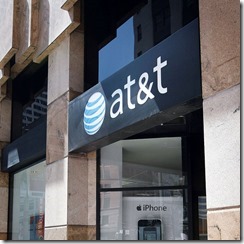In September Vodafone announced it had finally confirmed the deal to sell its 45 per cent stake in Verizon Wireless to Verizon for a total consideration of US$130 billion. While much of the proceeds from the sale are set to be distributed to Vodafone shareholders, the sheer size of the transaction and its implications for Vodafone’s global strategic positioning have analysts and commentators speculating on the knock-on effects of the deal
Vodafone CEO Vittorio Colao says the pending US$130 billion US transaction will reward shareholders for their long-term support and will provide Vodafone with a strong balance sheet, and strategic flexibility to make further investments in the business (Image by: Dominic Lipinski/PA)
Almost as soon as Vodafone Group announced it had reached a deal with Verizon for the sale of its 45 per cent stake in US wireless operator Verizon Wireless, speculation exploded internationally which painted Vodafone as both potential acquirer and potential acquisition target in almost equal measure.
What is clear is that by exiting the US market, Vodafone entering a new strategic landscape that will require it to balance the slowing of growth in many of its mature European markets, with ramping up its presence in emerging markets that may still offer decent growth prospects.
This theme is exemplified by Vodafone’s results for the first fiscal half of 2014 to end-September in which it reported continuing weakness in Europe, with the operator’s overall revenue increase coming from acquisitions and growth in non-European markets. Performance in the major European markets of Germany, the UK and the Netherlands remained under pressure due mainly to increasing price competition. Service revenues in Southern Europe fell 14.9 per cent.
Overall though, Vodafone reported a sharp rise in its first-half profits as revenues rose slightly. Service revenue in the rest of the world grew by 5.8 per cent, with good growth in most markets, partially offset by declines in Australia and New Zealand.
Group revenue in the six months to end-September was up by 1.2 per cent at £22.0 billion (US$35 billion). Excluding acquisitions, revenues would however have fallen by 1.6 per cent.
Operating profit came in at £5.71 billion, down 8.3 per cent year-on-year.
US telco AT&T was one of the first names to be linked with potential interest in Vodafone upon the successful disposal of its stake in rival operator Verizon Wireless. AT&T has previously expressed its interest in participating in the European wireless market, and according to reports from Bloomberg, the telco is already "mapping out a strategy" to purchase Vodafone, and is figuring out how it would manage Vodafone’s European operations.
Bloomberg reports suggest that AT&T is also considering UK carrier EE as an "alternative target" though Vodafone is said to be AT&T’s primary goal, with the two carriers alleged to have been in talks for some time. Originally, it is reported, Verizon and AT&T were to team up on a bid for Vodafone, with Verizon retrieving Vodafone’s stake in Verizon Wireless, and AT&T taking over the company’s European business. Verizon denied that rumour and managed to buy the stake without AT&T’s involvement, though should AT&T’s interest in Vodafone materialise, the market may see a similar outcome to the one had the two US telcos jointly pursued the UK operator.
Combined, Vodafone and AT&T would be a globe-spanning telecommunications player with a market capitalisation exceeding US$250 billion and large-scale operations in the US and across Europe. With more than 500 million wireless subscribers worldwide, the company would be the most influential operator on the planet, arguably with the power to single-handedly start reversing the digital services gains made by over-the-top (OTT) players such as Facebook, Viber, and YouTube in recent years in the telecom industry.
Tying up with AT&T offers another world of potential transactions linked to Vodafone assets, with credible sources having suggested should the US telco make a bid for Vodafone, it’s intention would be to spin off most of Vodafone’s emerging-market assets into a new entity that could be acquired by a single buyer, such as America Movil or China Mobile.
AT&T is believed to be less interested in Africa and India than in Europe’s developed markets, and such a plan was the basis for AT&T’s approach to Verizon earlier this year, given AT&T owns a nine per cent stake in America Movil and has two seats on its board.
Orange has expressed interest in buying some of Vodafone’s African operations should they ever come to market, which would also incorporate South Africa’s Vodacom Group, which rebranded to Vodafone, in which the UK parent holds a 66 per cent with a number of sub-Saharan assets managed through the regional headquarters in South Africa.
The structuring of Vodafone’s exit from Verizon Wireless means it will only be into the second half of next year that we may witness any movement on the speculated knock-on M&A activity as related to the UK operator. The deal with Verizon is expected to be completed in the first quarter of 2014 – pending the usual regulatory approvals.
Vodafone is receiving US$58.9 billion in cash and US$60.2 billion in Verizon shares. Verizon has the right to increase the cash portion of the total consideration by up to US$15 billion, and to decrease the number of Verizon shares to be issued accordingly.
Upon completion, Vodafone shareholders are expected to receive all the Verizon shares and US$23.9 billion of cash totalling US$84 billion, representing 71 per cent of the net proceeds.
That the shareholders are receiving the Verizon shares is a surprise, as it had been expected that Vodafone would hold onto them, partly to profit from later sales, and partly to thwart any takeover by a US company, such as AT&T.
AT&T is believed to be less interested in Vodafone’s assets in Africa and India than in Europe’s developed markets, and reflects AT&T’s approach to Verizon earlier this year to jointly bid for Vodafone
As part of the deal, Vodafone will acquire Verizon’s 23 per cent minority interest in Vodafone Italy for US$3.5 billion, thereby securing full ownership of the Italian subsidiary.
If the deal falls apart due to problems by either of the two companies, then onerous break-up fees are payable, ranging from US$1.55 billon to as much as US$10 billion if Verizon is unable to raise the funds for the cash component of the deal.
For its part, Verizon says that it has already secured US$61 billion as a bridging loan to pay for the deal.
Vodafone has also announced that part of the proceeds from the sale of its US stake will go towards the implementation of a new organic investment programme, Project Spring, which will see further investments of£7 billion over the next three financial years to speed up the deployment of 4G services and boost 3G coverage.
Project Spring
· Project Spring organic investment programme to accelerate and extend Vodafone 2015 strategy: continued focus on data, enterprise and emerging markets
· Additional investment increased to around £7 billion by March 2016, to establish stronger network and service differentiation in major markets
· Peak impact on EBITDA from higher operating expenses of up to £0.6 billion in the 2015 financial year; neutral to EBITDA by the 2017 financial year
· Incremental free cash flow of over £1 billion expected in the 2019 financial year
· Commitment to annual growth in dividends per share
Source: Vodafone Group
Other strategic investments that have started to gain momentum include Vodafone having made its intention to raise it presence in India further quite clear. In October it was reported that the operator is planning to take advantage of relaxed foreign ownership rules to buy out the minority shareholders in its Indian subsidiary.
Industry sources said that Vodafone is expected to apply to the Foreign Investment Permission Board (FIPB) for authorisation to raise its stake in Vodafone India from 74 per cent to 100 per cent.
Technically, Vodafone Group owns a 64.4 per cent stake in a holding company, also called Vodafone India, and a further 20.1 per cent of the mobile network through other uncontrolled subsidiaries.
Other shareholders in Vodafone India include Piramal Healthcare with 11 per cent and Max India’s founder Analjit Singh, who owns around six per cent.
Piramal Healthcare has said several times recently that it is looking to sell, and only saw itself as a short-term investor in the company. It also has a put option that would force Vodafone to buy its stake if a stock market listing does not take place by February 2014.
Vodafone’s buyout of its minority partners in India could cost an estimated US$2 to US$2.7 billion.
A similar situation exists in Egypt where Vodafone has expressed interest in buying out Telecom Egypt’s stake in the joint venture, sending the landline monopoly’s share price surging to its highest level since early this year, after the revelation in October.
Vodafone Egypt is a joint venture between the two companies, with Telecom Egypt owning a 45 per cent stake in the cellco. The stake has been valued at around US$2 billion.
There have been expectations that Telecom Egypt may sell its stake for the past year or so ever since the telecom regulator said it would grant the landline monopoly an MVNO licence to start offering its own mobile services.
Vodafone is now ready to buy the 45 per cent stake, an official at the company told Bloomberg.





0 comments ↓
There are no comments yet...Kick things off by filling out the form below.
Leave a Comment